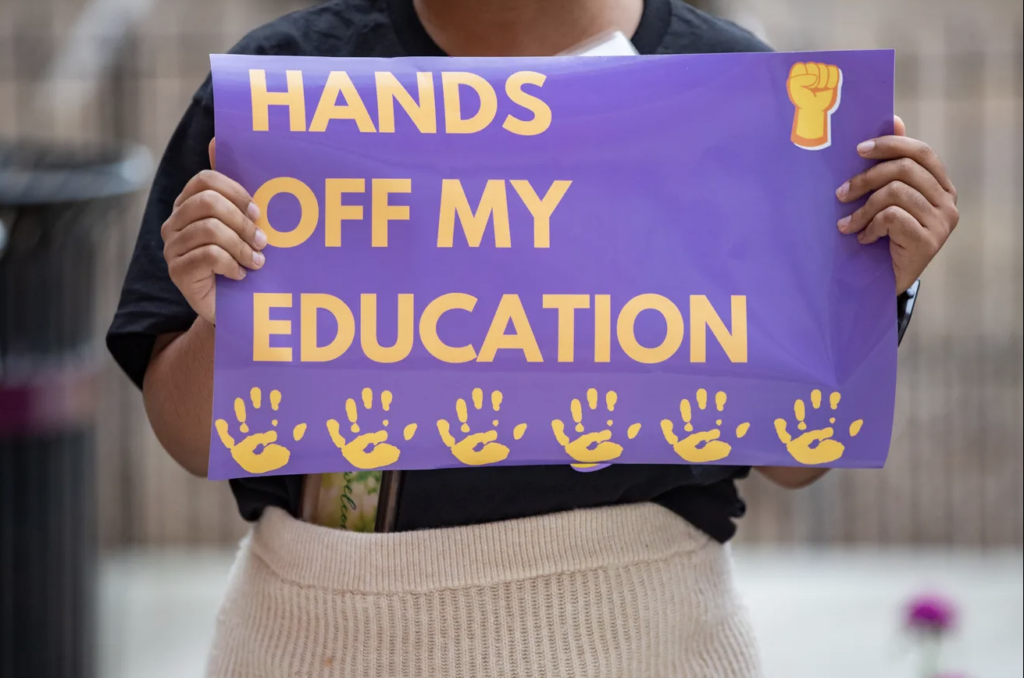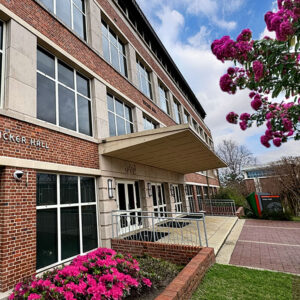News | February 12th, 2024
Florida Board of Governors Removes Sociology Course in Latest Anti-‘Woke’ Move
By: Alexis Rejouis

In a recent decision, Florida’s board of governors has decided to remove SYG 2000, Principles of Sociology, as a required general elective for all public higher education institutions in the state.
This decision is one of many from Gov. Ron Desantis’ ‘anti-woke’ approach, which has been a focus of his since the beginning of his current term. He has kept a consistent trend in legislation towards censoring certain topics at all educational levels, and has been steadfast in his pursuit to more heavily involve Florida’s government in education.
This decision has been a disappointment to educators and sociologists alike. To express this, sociology department chairs from every four-year public institution have signed a statement to the Florida Board of Governors on their proposal to remove from the general education core course options.
In the statement, the department chairs requested that the course request the reinstatement of the course, as they intend on continuing to teach it. They also highlighted the importance of sociology to all majors, scientific studies, careers, and walks of life.
“Students have long gravitated to introductory sociology courses because they understand that they will gain a broad perspective on the social forces that influence their lives and life chances,” they wrote.
“This is the intrinsic benefit that introductory sociology brings to the core of general education, and it is also what makes it an important component of the civic literacy that we have defined as a goal of higher education.”
The reasoning for the decision, however, stems from the notion that sociology has been “hijacked” by left-wing activists. In a tweet made by Manny Diaz Jr., commission of education member, he expresses this sentiment as well as support for the decision.
“Sociology has been hijacked by left-wing activists and no longer serves its intended purpose as a general knowledge course for students,” Comm. Diaz says. “Under @GovRonDeSantis, Florida’s higher education system will focus on preparing students for high-demand, high-wage jobs, not woke ideology.”
The views of right-wing voters in the state of Florida, who according to Florida’s Division of Elections hold nearly 40% of the vote, are becoming more strongly represented. The tri-county area of South Florida (Miami-Dade, Broward, and Palm Beach) continues to hold most of the democratic votes in the state, but as years progress the state becomes more red, thus a shift in the values of the state.
The shift was not only seen with removal of this course as it is not the first educational adjustment of the DeSantis administration. In recent years, his anti-woke mission has led to the removal of AP African American History, the removal of sections in the AP Psychology courses, and now, the removal of this course.
This trend, as seen by Joelle Nuñez, president of the FSU Chapter of the Student Democratic Society, displays evidence of the overall politicization of education as opposed to letting students receive a comprehensive education.
“To stop people from volunteering to take it, it’s not right. It’s also a thinly veiled attack on trying to go against education in general,” Nuñez says. “It’s part of they’re racist campaign to get rid of any education that talks about inequalities or existing oppression in our society and we stand against that.”
As the political landscape of Florida shifts towards a more right-leaning state, shifting the tide on the new legislation seems to be a task for the distant future. Despite pushback, regression in legislation seems to be an unstoppable trend in the state, especially as bills such as HB465 and HB999, restricting free speech on college campuses and removing DEI programs, not only reach the legislative floor, but successfully come into effect as law.
The removal of SYG 2000 from the curriculum not only diminishes educational diversity but also raises concerns about the broader implications for the State University System (SUS) and the pursuit of knowledge in Florida’s higher education institutions.
In their closing remarks, the sociology department chairs write, “Removal of SGY 2000 from the list of options from which students can choose will not only reduce viewpoint diversity in the general education curriculum, but it may also have negative consequences for the SUS that are not as obvious.”






